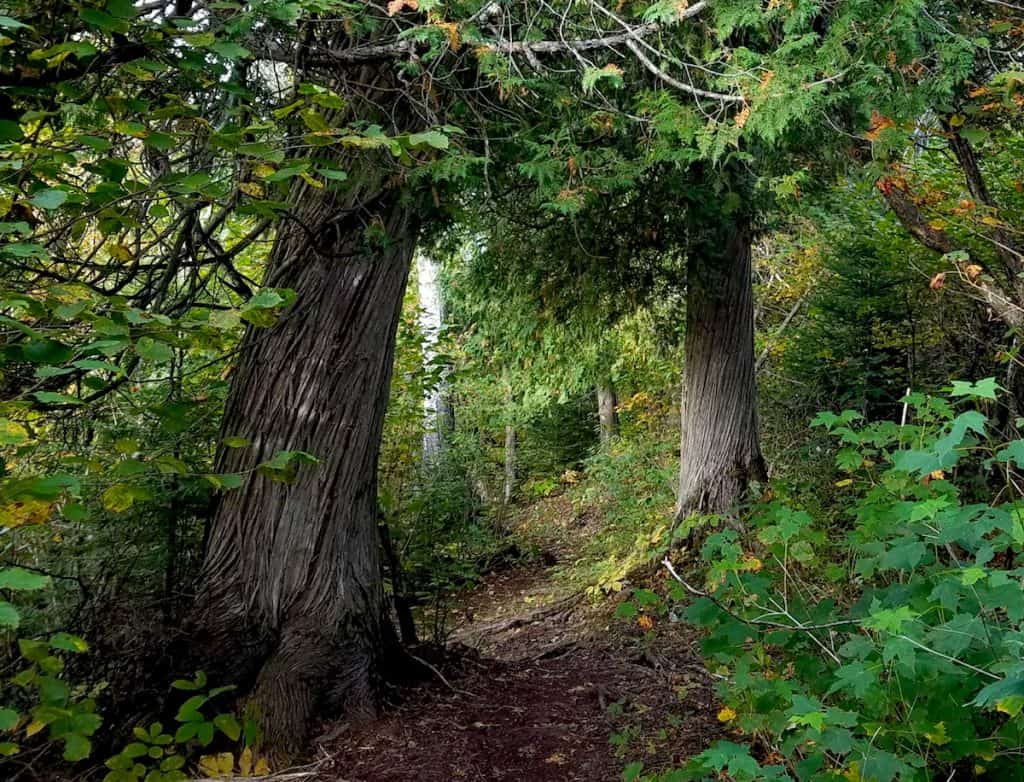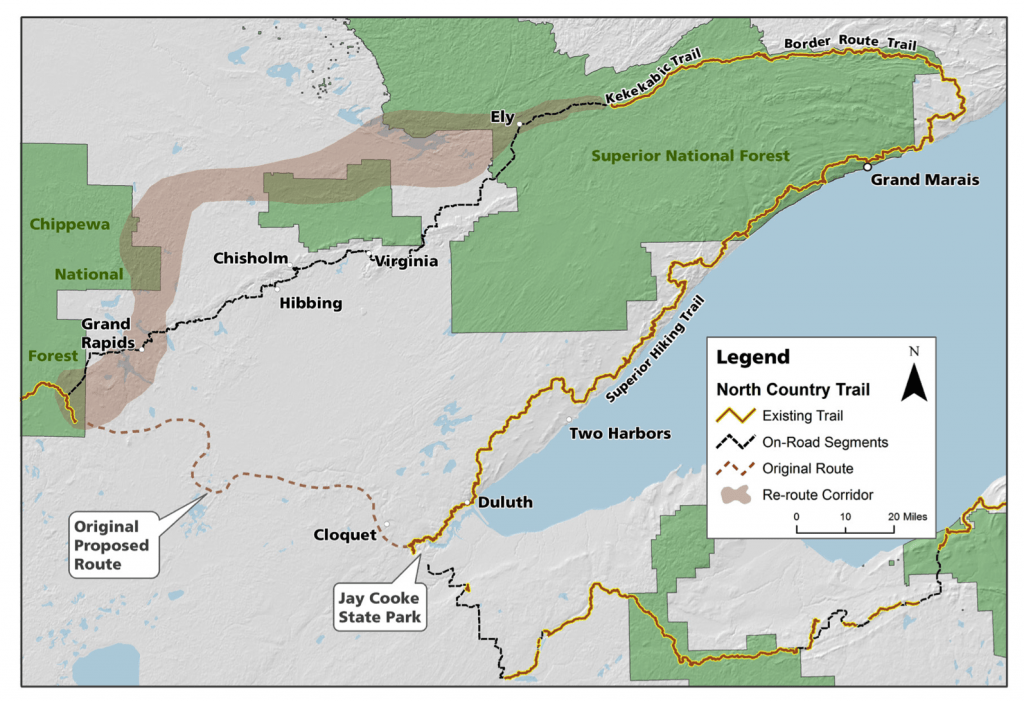
A major piece of public lands legislation passed by the Senate last week included a long-sought fix for trails in the Boundary Waters Canoe Area Wilderness, and the Superior Hiking Trail.
The North Country National Scenic Trail, which will stretch from Vermont to North Dakota, could officially be re-routed to incorporate the Superior Hiking Trail, Border Route Trail, and Kekekabic Trails, if the House of Representatives passes a companion bill and President Trump signs it.
When the original legislation was passed creating the North Country Trail in 1980, it called for the route to cross about 80 miles of mostly untracked bogs in north central Minnesota. Since that time, the Arrowhead trails have developed, along with a user and volunteer base.
The North Country Trail Association, the nonprofit group that coordinates much of the trail’s maintenance and management, has never sought to build the bog section, and has instead promoted the trail as including the existing routes.
Long-sought solution

Incorporating the trails into the national system, rather than building boardwalks through fairly monotonous terrain, has been seen as obvious solution for years. It could bring additional publicity, funding, volunteers, and other resources.
Legislation has been introduced in both chambers several times over the past decade, but has hit political roadblocks again and again — until this month.
The provision was included in S. 47, the “Natural Resources Management Act,” a broad piece of omnibus legislation that included numerous additions to the country’s public lands, created a new National Park, re-authorized the critical Land and Water Conservation Fund, and implemented other changes large and small, many of which will have benefits for the Quetico-Superior region.
“Thank you Senators for showing your support for public lands, trails and rivers by passing S.47, the Natural Resources Management Act,” the North Country Trail Association wrote. “Let’s get this done by urging our members on the House side to pick up the bill and take it to the finish line.”
While it was lauded by many people and organizations, others pointed out it also included a measure that could privatize vast tracts of land in Alaska, which fossil fuel companies are interested in accessing.
The last major public lands omnibus bill was passed into law in 2009.
On to the House
It did not take long for the House to take up the issue. The same day it passed the Senate, freshman Congressman Pete Stauber, who represents Minnesota’s eighth district, where the trails are located, co-sponsored legislation to affirm the Senate bill.
“In Minnesota, we are blessed with an abundance of natural beauty that attracts tourists from all over the nation and world,” said Stauber. “This commonsense bill would reroute the North Country Trail, giving recreationists and hikers the chance to experience even more of our region’s stunning scenery, all while enhancing tourism and bringing more revenue to our local economy.”
On the other end of the trail, hikers had long sought to extend it to connect with the northern terminus of the Appalachian Trail. That change was also included in the Senate bill, and the House legislation, with Congressman Peter Welch of Vermont the co-sponsor.
The North Country Trail Association says the re-route could “unleash” the organization’s volunteer power on the popular, maintenance-intensive trails of northern Minnesota. The group lists numerous upcoming opportunities for volunteer trainings and projects, as well as guided hikes and other events, on its website.

